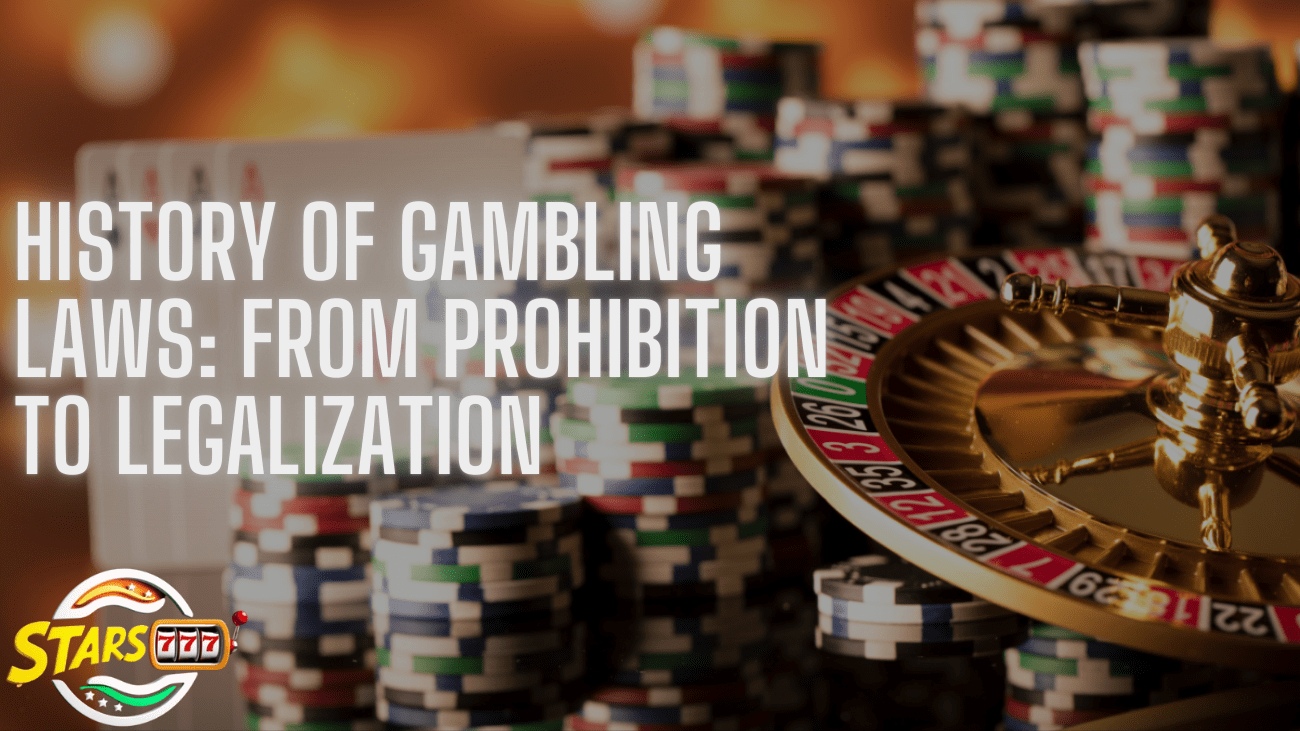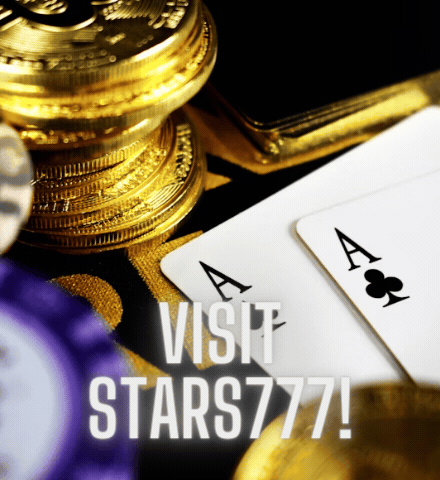History of Gambling Laws: From Prohibition to Legalization
Gambling, one of the world’s oldest pastimes, has always been a subject of both fascination and controversy. From ancient dice games in Mesopotamia to the glitzy casinos of Las Vegas, societies have grappled with how to regulate or prohibit gambling activities. The evolution of gambling laws has been shaped by various factors: religion, morality, economics, and the desire to prevent criminal activity. This blog will explore the rich history of gambling laws, from periods of strict prohibition to the eventual legalization and regulation we see in many parts of the world today.
The Early History of Gambling and Legal Restrictions
Gambling has ancient roots, with dice games and betting known to have existed in early civilizations like the Egyptians, Greeks, and Romans. These early forms of gambling were often unregulated, though in some cases, governments took an interest in controlling or taxing gambling activities.
In ancient Rome, gambling was largely frowned upon, except during the popular Saturnalia festival. The Roman Empire created its first gambling laws to manage public morality and limit excessive betting, marking one of the earliest instances of government intervention. Penalties for illegal gambling ranged from fines to more severe punishments. Despite such restrictions, gambling remained widespread, with citizens often finding ways to evade the law.

Gambling in the Middle Ages: A Struggle Between Morality and Entertainment
During the Middle Ages, European gambling laws were deeply influenced by the church. Christian doctrine largely condemned gambling as a sinful activity. As a result, many European countries implemented stringent gambling laws that sought to curb what was viewed as morally hazardous behavior. The Catholic Church, in particular, played a significant role in framing gambling as a vice, and many forms of gambling were outlawed.
However, the struggle between morality and the desire for entertainment persisted. Various games of chance continued to thrive underground. In countries such as England, illegal gambling dens flourished, especially in taverns and inns. The church’s disapproval, though strong, could not entirely suppress the human inclination toward games of chance. By the late Middle Ages, authorities began to accept that gambling could not be eliminated entirely and that regulation, rather than prohibition, might be the better solution.
The Rise of Lotteries in the Renaissance and Early Modern Period
As Europe transitioned into the Renaissance, gambling laws became more nuanced. Governments began to see the potential financial benefits of regulating and even sponsoring certain forms of gambling. One of the earliest legalized forms of gambling was the lottery, which became popular across Europe during the 16th and 17th centuries.
Lotteries served as a way for governments to raise funds without imposing additional taxes. For example, in 1569, Queen Elizabeth I approved the first English lottery, with the proceeds going toward repairing infrastructure. The legalization of lotteries set an important precedent in gambling laws: rather than focusing on prohibition, governments could regulate and control gambling activities for the public good.
The Prohibition Era: Morality and Outlawed Gambling
As gambling grew more widespread, so did opposition from moral reformers and religious groups. By the 19th and early 20th centuries, the pendulum swung back toward prohibition, especially in the United States. The morality-based push to outlaw gambling coincided with the Temperance Movement, which sought to eliminate alcohol and gambling alike.
In the U.S., this era of prohibition saw most forms of gambling criminalized. States passed a variety of anti-gambling laws, making casinos, lotteries, and sports betting illegal. The American South, in particular, cracked down on gambling establishments, viewing them as dens of vice that contributed to crime and corruption.
This prohibition was not limited to the U.S. Other countries, like Canada and Australia, also implemented strict anti-gambling laws, with a focus on morality and public health. During this time, illegal gambling operations flourished in underground establishments, as the demand for betting activities remained strong.
The Birth of Las Vegas and Legalized Casino Gambling
Despite the stringent gambling laws of the early 20th century, cracks in the foundation of prohibition began to appear. In Nevada, for example, the Great Depression of the 1930s prompted lawmakers to look for new sources of revenue to revive the state’s economy. In 1931, Nevada legalized most forms of gambling, setting the stage for the rise of Las Vegas as the gambling capital of the world.
The decision to legalize gambling in Nevada was a turning point in the history of gambling laws. Instead of outright prohibition, the state opted for heavy regulation, requiring licenses for casinos and establishing gambling commissions to oversee the industry. This regulatory model eventually became the blueprint for legalized gambling in other parts of the world.
The Evolution of Gambling Laws in the Post-War Era
After World War II, the global attitude toward gambling began to shift. The economic benefits of regulated gambling, as demonstrated by Nevada’s success, encouraged other states and countries to reconsider their stance on gambling. In the 1950s and 1960s, more U.S. states began legalizing lotteries and casinos, with an emphasis on tight regulation and ensuring that gambling activities did not encourage organized crime.
In Europe, countries like Monaco and the United Kingdom also began embracing regulated gambling. Monaco’s famous Monte Carlo Casino became a symbol of European gambling, attracting wealthy visitors from across the world. Meanwhile, the UK passed the Betting and Gaming Act of 1960, which legalized betting shops, bingo halls, and casinos under strict licensing requirements.
Modern Era: The Global Spread of Regulated Gambling
By the end of the 20th century, gambling laws had evolved significantly. More governments around the world recognized the potential for legal gambling to generate significant revenue through taxation, tourism, and job creation. This realization led to the gradual legalization of various forms of gambling, from online poker to state-sponsored lotteries.
In the U.S., for example, the 1990s saw the expansion of legal gambling to Native American reservations under the Indian Gaming Regulatory Act. This move allowed Native American tribes to open casinos, creating a new dimension to the gambling landscape in America. Similarly, the proliferation of online gambling in the late 1990s and early 2000s added new complexities to gambling laws, as regulators struggled to keep up with technological advances.

Online Gambling: New Challenges and Legal Frameworks
The rise of online gambling in the 21st century revolutionized the gaming industry and presented new challenges for regulators worldwide. Countries had to adapt their gambling laws to account for digital platforms, cross-border betting, and international players. Some nations, such as the United Kingdom, were quick to implement comprehensive regulatory frameworks for online gambling. The UK Gambling Commission was established to oversee both land-based and online betting, ensuring that gambling companies operated fairly and transparently.
In contrast, countries like the United States struggled to create a cohesive legal framework for online gambling. The Unlawful Internet Gambling Enforcement Act (UIGEA) of 2006 attempted to curb online gambling by prohibiting the use of credit cards and electronic payments for gambling activities. However, this law did not eliminate online gambling, and many Americans continued to access offshore sites until individual states began to pass their own online gambling laws.
The Current Landscape and the Future of Gambling Laws
Today, gambling laws vary widely from country to country, reflecting differing attitudes toward risk, morality, and public health. In places like Las Vegas and Macau, gambling is a significant part of the economy, contributing billions in revenue each year. In contrast, countries like Japan and India maintain stricter laws, though even these nations have begun to explore more lenient regulations in recent years.
Looking forward, the future of gambling laws will likely continue to evolve in response to new technologies like virtual reality casinos, cryptocurrency betting, and blockchain gambling platforms. As governments aim to strike a balance between regulation and innovation, the challenge will be to ensure that gambling remains fair, transparent, and free from criminal influence.
Conclusion
The history of gambling laws has been a complex journey from prohibition to legalization. While early laws sought to suppress gambling on moral and religious grounds, modern regulations aim to create controlled environments where gambling can contribute positively to the economy. As gambling continues to evolve, so too will the legal frameworks that govern it, ensuring that this age-old pastime remains a part of the global entertainment landscape for generations to come.
The evolution of gambling laws is a reflection of society’s changing attitudes toward risk, pleasure, and regulation. From the earliest prohibitions to the rise of modern online gambling platforms, the story of gambling laws is far from over.
- Stars777 – Download and Install the app to play casino games with free starting bonuses and get the chance become billionaire someday!
- Stars777 Privacy Policy — Understand how Stars777 collects, uses, and protects your personal information when you use their platform.
- Stars777 Terms of Service and Guidelines — Learn about the rules and conditions you agree to when accessing and using Stars777’s online casino services.








